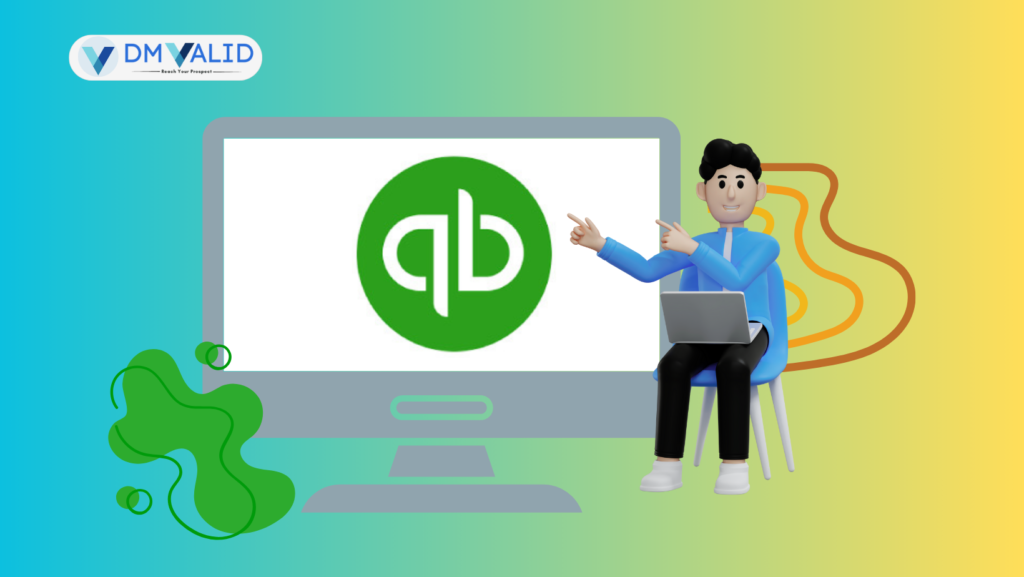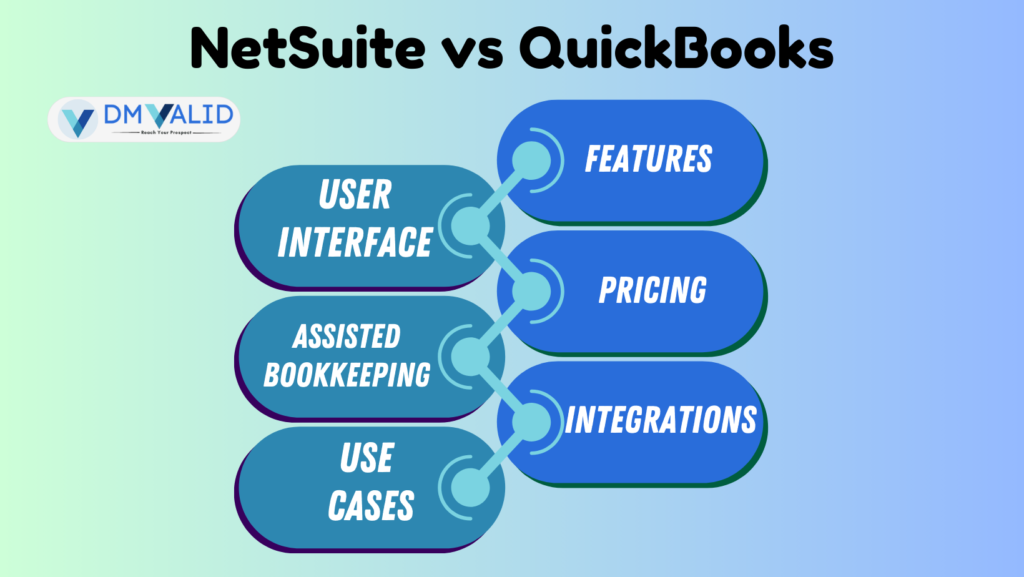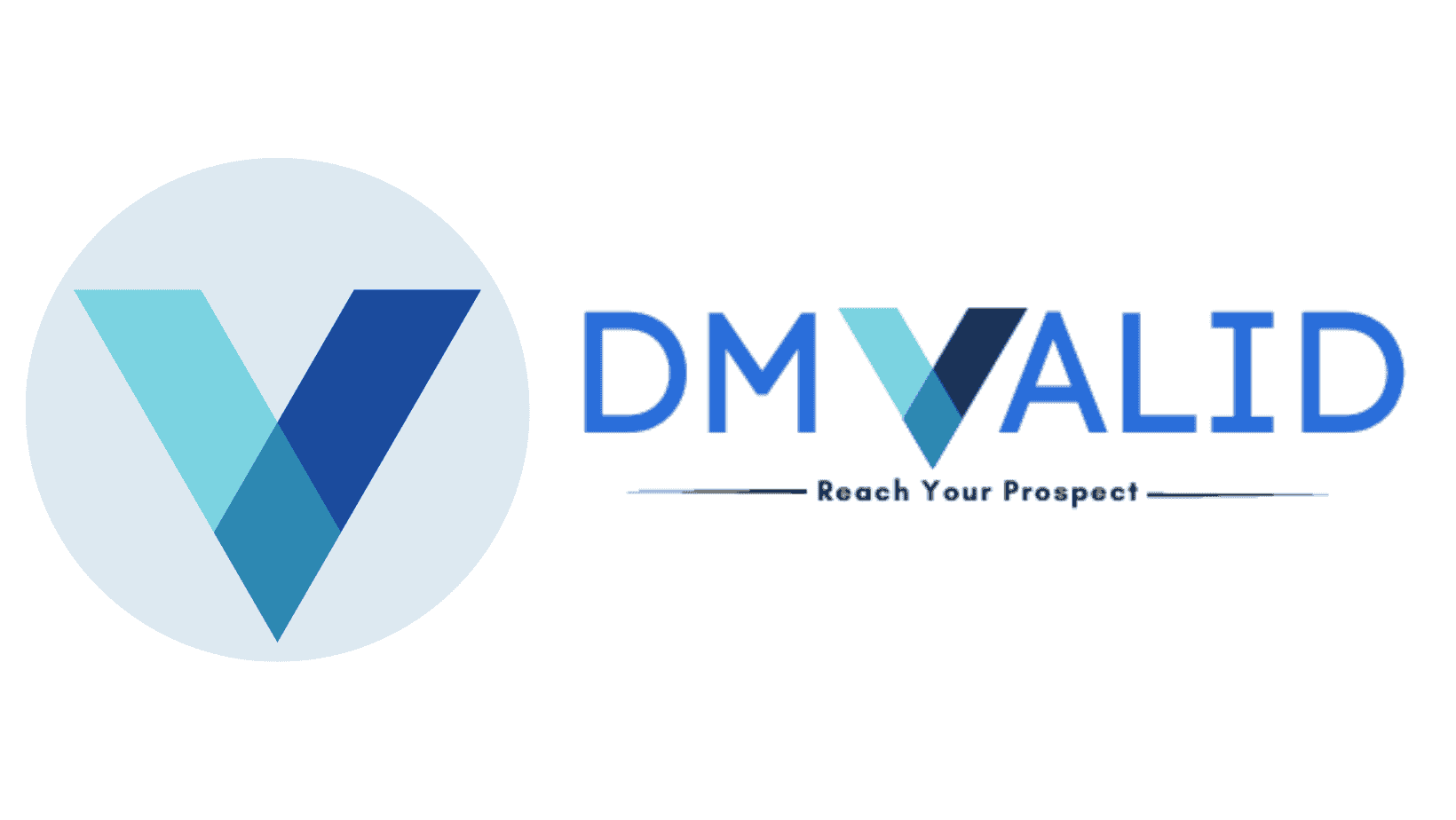Table of Contents
Introduction
A strong accounting management system is essential to comprehending and preserving the financial stability of your business. However, there is no one-size-fits-all approach when it comes to accounting, much like other corporate systems. You can select from a wide range of available options based on the size, objectives, and needs of your business. Should NetSuite and QuickBooks users’ email lists be your intended audience, you can effortlessly contact them via their preferred channels by purchasing email lists from DM Valid.
If, like the majority of companies, you’ve decided between NetSuite and QuickBooks, you may be asking which program is ideal for your company. Furthermore, even though they are both superior accounting software, the kinds of organizations they cater to are extremely different. We’ll go into great detail about each of these variations in this blog post to assist you in making the best choice possible and acquiring the best B2B database for your marketing campaigns.
What is NetSuite?

NetSuite is a comprehensive ERP user email list software that helps you manage, operate, and achieve business goals. It is loaded with excellent features that allow you to automate business operations and activities. The software offers a full stack of analytic tools and serves over 37,000 customers globally. Some features of NetSuite include:
- Customer and Lead Management
- Opportunity Management
- Demand Planning Engine
- Campaign Management
- Automated Workflows
- Sales Forecasting
- Targeted Emails
- Time Tracking
What is QuickBooks?

QuickBooks will be one of the most widely used small companies. Whether you need a better solution than your present software, wish to get away from manual bookkeeping, or your spreadsheets have become a multi-headed hydra, it can be a decent option without breaking the bank. Some of its features include:
- Invoice and ash Flow Management
- Automated Tax Payments
- Accounting Reports
- Payroll Management
- Financial Reporting
- Multi User Access
- Online Banking
- Time Tracking
NetSuite vs. QuickBooks:

These two pieces of software assist you in automating business activities and fulfilling your accounting obligations. However, you must take into account the following elements in order to make the best choice for your company:
1. Features
While both solutions simplify your accounting operations, there is a vast difference when it comes to the features they offer. With NetSuite, you can manage your accounts receivable and payable and access an extensive report library. This library allows you to view the accounting reports of the parent and subsidiary companies in the currency of your preference.
2. User Interface
The abundance of information on NetSuite’s dashboard could potentially be confusing. However, accessing other parts such as payments, costs, and reports is simple with the menu tab at the top. QuickBooks also gives you a lot of information, but it is more user-friendly than NetSuite.
3. Pricing
NetSuite provides personalized subscription plans according to user numbers, licences, and additional factors. The programme costs between $99 and $999 each month, depending on the plan you choose. For the first setup, there is also a one-time installation cost that you must pay.
For QuickBooks, the pricing is as follows:
- QuickBooks Online:- $27-$185/month
- QuickBooks Self-Employed: $16-$36/month
- QuickBooks Pro: $359.99/year
- QuickBooks Premier: $559.99/year
- QuickBooks Enterprise: $1,665+/year
- QuickBooks for Mac: $359.99/year
4. Assisted Bookkeeping:
QuickBooks comes with a virtual bookkeeping service known as QuickBooks Live. These bookkeepers do not offer day-to-day services but help you with setup and cleanup for better business. NetSuite, on the other hand, does not offer bookkeeping services. This means you’ll have to rely on third-party businesses for your requirements.
5. Integrations
When choosing software for your organization, this is one of the most crucial aspects to take into account. End-to-end operations can be ensured with seamless integration between accounting software and your current corporate platforms. Popular business software can be seamlessly integrated with NetSuite, and if you use other suppliers to handle your operations, you may add more connectors using its open APIs.
6. Use Cases
NetSuite: This software is perfect for streamlining inventory management, customer relationship management (CRM), enterprise resource planning (ERP), and other processes. Financial services, consulting, manufacturing, healthcare, education, non-profits, and other businesses all use it extensively. You need to obtain a NetSuite user email list if your B2B sales leads are related to these sectors.
QuickBooks: This is a great tool for entrepreneurs and small companies looking for an easy-to-use, affordable way to handle their finances. It is well-liked in sectors including professional services and transportation.
Conclusion
NetSuite and QuickBooks are both great tools for meeting the changing needs of organizations. Additionally, these solutions are an excellent place to start if you’re prepared to abandon conventional Excel spreadsheets forever. However, choose software that provides all the connectors and customizations your company requires to make an informed choice.
With DM Valid, you can easily connect with your target audience using these solutions by purchasing a comprehensive and accurate email list. You can avail of our data appending service and Java user email list for higher deliverability.
Content Writer at DM Valid
Asifa Khanum is a Content Specialist at DM Valid. I fulfilled roles in marketing that shaped her interest in finding innovative solutions to modern-day problems.



